
Research Round Up
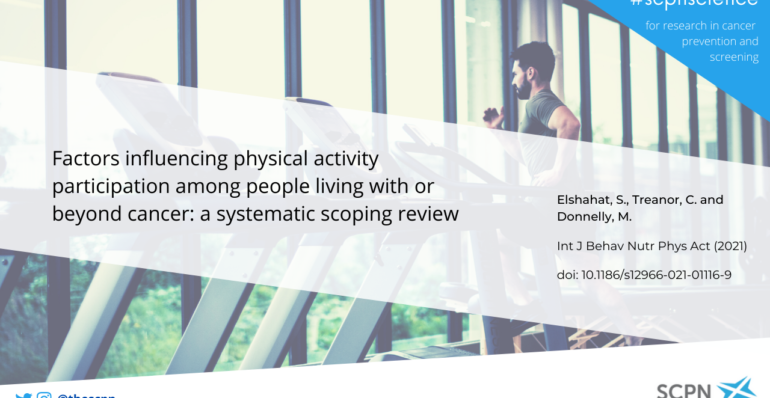
11 Jun 21 |
If you have been following our #scpnscience twitter posts over the last few months, you’ll have seen there has been some fantastic research published since our last e-digest! Here is a round-up of published articles we have found interesting at the SCPN.
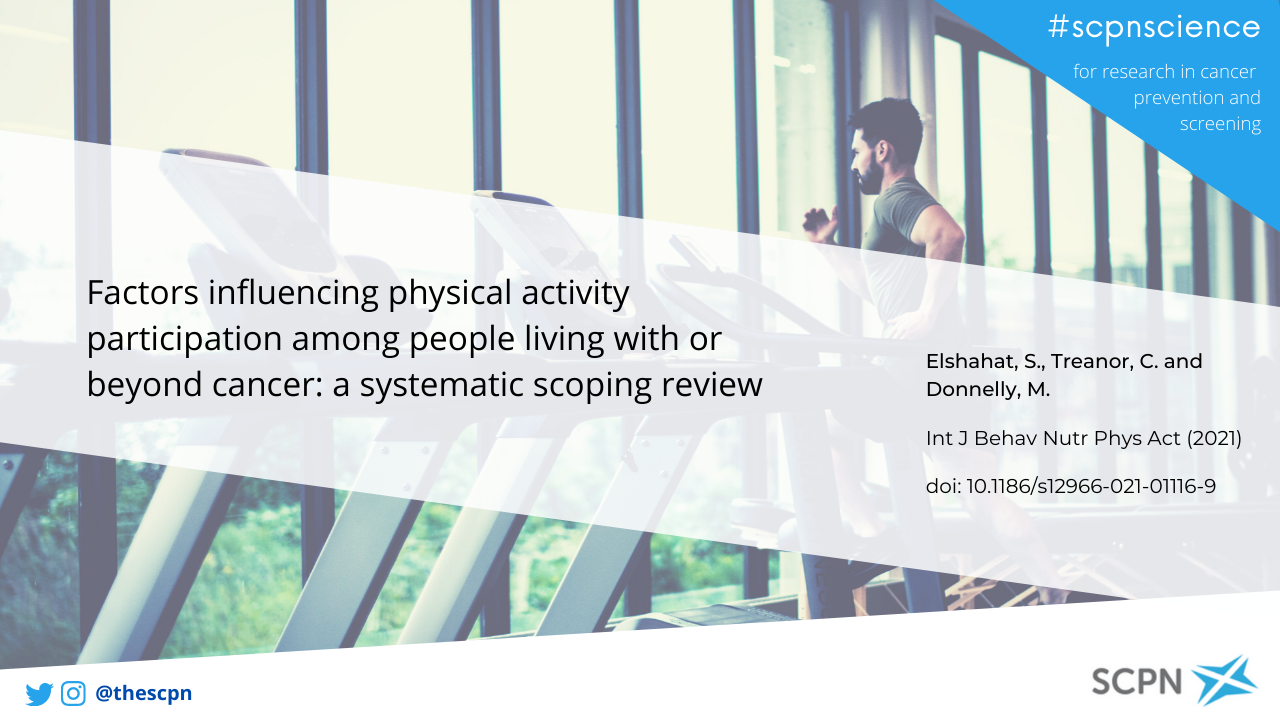 Evidence for the beneficial role of physical activity in improving health outcomes and health-related quality of life of people living with or beyond cancer is growing, however this has not translated into higher physical activity levels being undertaken by cancer patients. In this systematic scoping review, Elshahat and colleagues investigated attitudes, perceptions, preferences and barriers vs. facilitators to cancer patients’ physical activity participation. Although cancer patients reported positive attitudes to physical activity and recognized its benefits for health and wellbeing, cancer-related side effects were a leading physiological barrier to physical activity participation. Psychosocial barriers included low motivation and kinesiophobia, and perceived health benefits and social support by healthcare providers were significant facilitators. The authors concluded that physical activity promoting-strategies should involve exercise science professionals in healthcare teams and ensure that fitness facilities are accessible.
Evidence for the beneficial role of physical activity in improving health outcomes and health-related quality of life of people living with or beyond cancer is growing, however this has not translated into higher physical activity levels being undertaken by cancer patients. In this systematic scoping review, Elshahat and colleagues investigated attitudes, perceptions, preferences and barriers vs. facilitators to cancer patients’ physical activity participation. Although cancer patients reported positive attitudes to physical activity and recognized its benefits for health and wellbeing, cancer-related side effects were a leading physiological barrier to physical activity participation. Psychosocial barriers included low motivation and kinesiophobia, and perceived health benefits and social support by healthcare providers were significant facilitators. The authors concluded that physical activity promoting-strategies should involve exercise science professionals in healthcare teams and ensure that fitness facilities are accessible.
Access full paper here
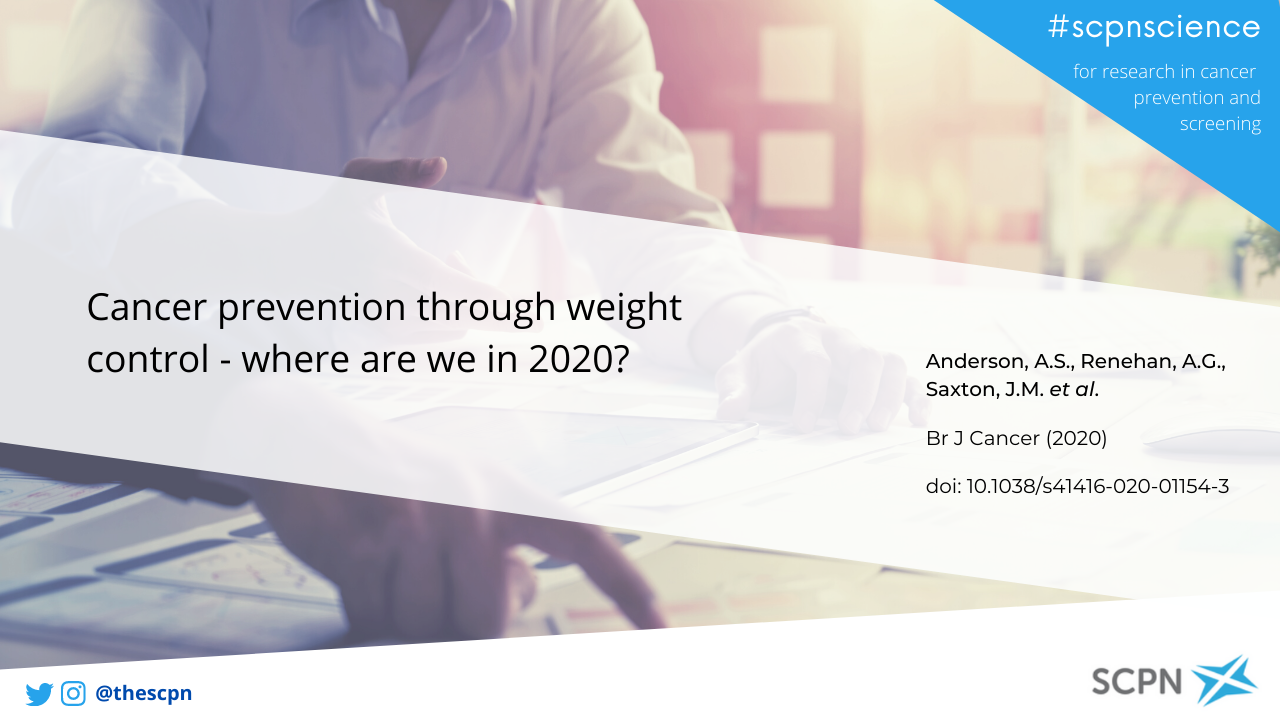
The majority of current observational evidence on weight loss and obesity-related cancers suggests that decreasing body weight, reducing excess body fatness and maintaining losses (by even relatively modest amounts!) can have an impact on future cancer risk. This paper published by our co-director Prof. Annie Anderson and colleagues in the British Journal of Cancer highlights the urgency for investment into cancer prevention research, with particular focus on non-pharmacological trials aimed at reducing excess body fat. This publication gives a snap-shot of what is currently known around strategies to reduce excess weight and the role of body fatness in cancer risk, including pros and cons of trial design and how future studies can better inform weight management programmes for individuals with overweight and obesity.
Access full paper here
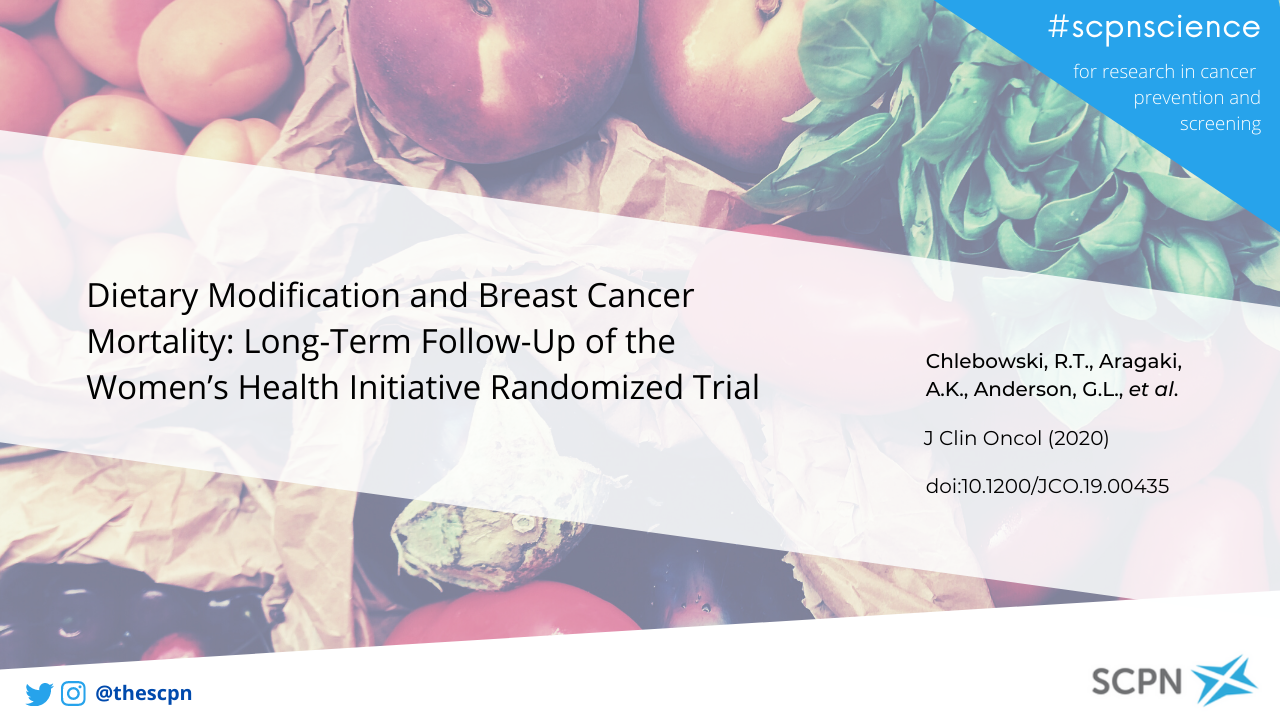
This follow-up study of the Women’s Health Initiative trial in the US adds to the body of evidence supporting the role of diet in breast cancer incidence. In the Women’s Health Initiative Dietary Modification trial, 48,835 postmenopausal women were randomly assigned to dietary modification or usual diet comparison groups to test whether a low-fat dietary pattern reduces the incidence of breast cancer. After almost 20 years, follow-up data highlights a substantial and sustained reduction in ER-positive, PR-negative breast cancers, which carry a poor prognosis. In addition, of 1,764 women diagnosed with breast cancer during the dietary intervention, postdiagnosis 10-year breast cancer overall survival was significantly greater in the dietary intervention group (82% v 78%; P= 0.01). The authors suggest that adoption of a low-fat dietary pattern aimed at increasing vegetables, fruit, and grain intake may reduce the risk of death as a result of breast cancer in postmenopausal women.
Access full paper here
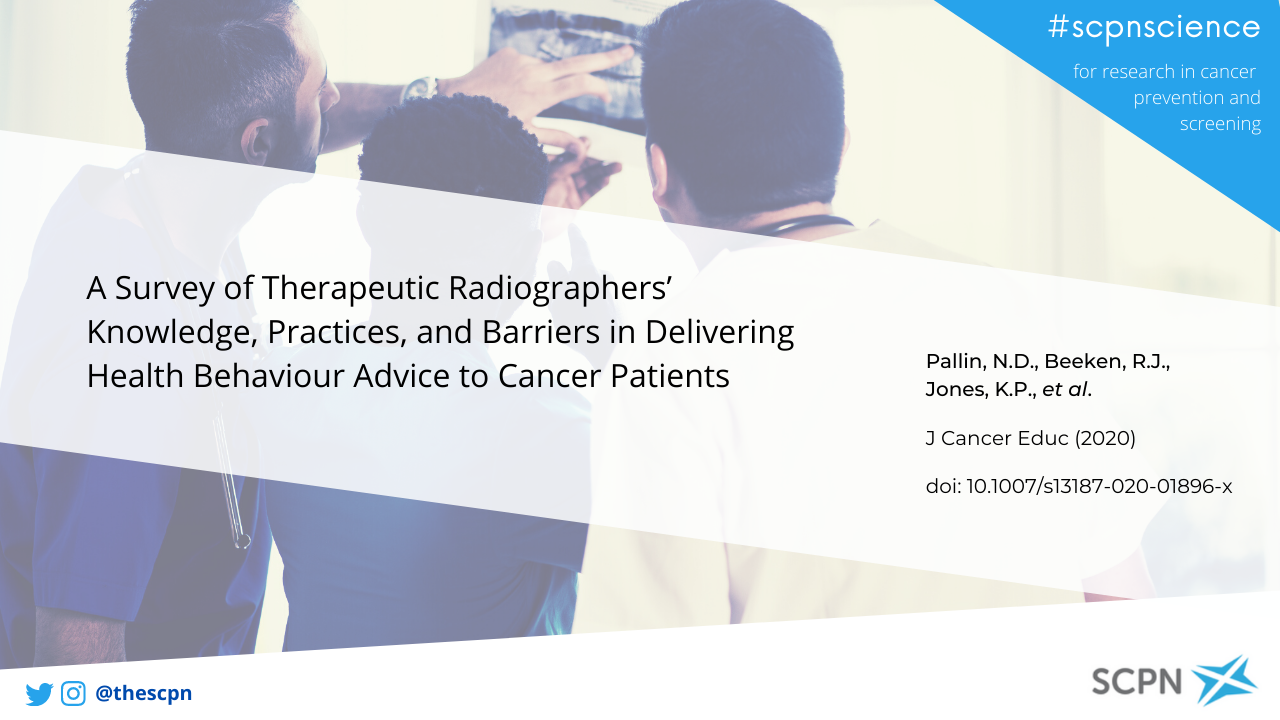 As healthcare providers therapeutic radiographers are well-placed to offer advice to cancer patients but little is known about their practices in providing advice on healthy lifestyle behaviours. Using an online survey, Pallin and colleagues explored UK-based therapeutic radiographers’ current practices, barriers and facilitators around delivering healthy behaviour advice to cancer patients. Findings showed that levels of enquiry and delivery of advice on healthy behaviours were low, with less than 25% advising patients on physical activity, healthy eating, weight management, smoking cessation and reducing alcohol intake. Lack of knowledge, resources and training were identified as barriers, in addition to perceived lack of patient interest and lack of time. Therapeutic radiographers showed willingness to undertake training, highlighting the need for such opportunities for these healthcare professionals. Post-graduate training on health behaviour advice, including diet, physical activity and weight management, would be of particular benefit.
As healthcare providers therapeutic radiographers are well-placed to offer advice to cancer patients but little is known about their practices in providing advice on healthy lifestyle behaviours. Using an online survey, Pallin and colleagues explored UK-based therapeutic radiographers’ current practices, barriers and facilitators around delivering healthy behaviour advice to cancer patients. Findings showed that levels of enquiry and delivery of advice on healthy behaviours were low, with less than 25% advising patients on physical activity, healthy eating, weight management, smoking cessation and reducing alcohol intake. Lack of knowledge, resources and training were identified as barriers, in addition to perceived lack of patient interest and lack of time. Therapeutic radiographers showed willingness to undertake training, highlighting the need for such opportunities for these healthcare professionals. Post-graduate training on health behaviour advice, including diet, physical activity and weight management, would be of particular benefit.
Access full paper here